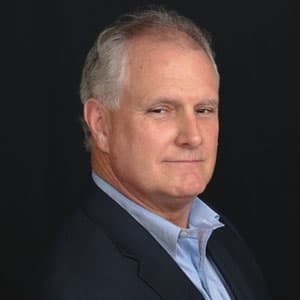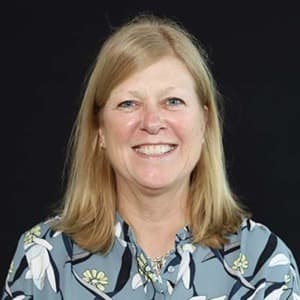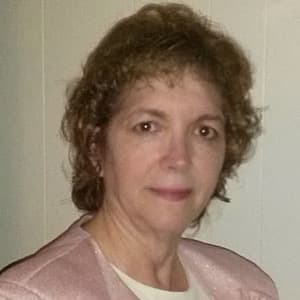The Blog
BBC Interview Series: Kent J. McDonald at KBP.media
BBC 2017 Speaker Series – Consultant: Kent J. McDonald, Writer and Product Manager, KBP.media
In anticipation of his presentation at Building Business Capability in Orlando, Nov. 6-10, 2017, we asked Kent J. McDonald, Writer and Product Manager, KBP.media, a few questions about transforming the business. Check out this interview in relation to his BBC presentation entitled, Examining the Product Owner Role.
Q: In what ways do you help your client organizations handle business transformation?
A: I help organizations change the way they approach their IT work by viewing the systems and applications that support their business processes as internal products. This product perspective causes these organizations to take a longer-term, more cohesive approach to these systems than the disjointed project approach. I also help product people (business analysts, product managers, and product owners) adopt simple yet powerful techniques that allow them to focus on outcomes rather than output, build shared understanding among their teams, and make sure decisions get made. Finally, I encourage them to have open, honest conversations at a portfolio and initiative level about what can and cannot be done with the available people and budget so that the organization can focus on the few important things that should be done.
Q: Can you describe the challenges you face or have already overcome in establishing more robust business transformation capabilities for your clients?
A: The main challenges I run into are: 1) organizations that continuously search for best practices without considering the impact context has on what will or will not work 2) People inside organization are unwilling, or think they are unable, to have open honest conversations at a portfolio and initiative level about what can and cannot be done so that teams are able to focus on the truly important activities. 3) Organizations that adopt the techniques included in an agile framework (such as Scrum or SAFe) in their IT organization alone and focus solely on efficiency instead of seeking agility across the organization (which includes changing how they decide what to do and not do) and focus on effectiveness.
Q: What are your top suggestions for companies looking to become more agile?
A: 1) Understand why you want to become “more agile.” Know what outcome you seek. 2) Don’t just adopt the practices. Understand how your organizational culture will or will not support the learning and feedback essential to becoming more agile. 3) Get some help, but be careful where you get it from. Watch out for people pushing a framework without the corresponding mindset shift.
Q: What’s the most valuable thing you’ve learned in the past year?
A: You can’t change things outside of your control, but you can change your attitude.
Q: What do you see as the most important goal or trend for business analysts and other professionals to keep in mind?
A: Business analysts are product people. Add product management skills to your current collection of business analysis skills to focus your organization on delivering the right things. Along the way, you won’t have to argue that you provide value because you’ve demonstrated the value you add.
Q: What’s the latest method/process/tool you’ve implemented to help your client’s business’s operate more effectively? Have you seen any results yet?
A: Data informed decision making. Since we’ve launched the redesigned AgileAlliance.org a year and a half ago, we’re continually tweaking things on the site in order to see results in terms of traffic, membership, and event sign ups. I work with our content manager who has a great deal of experience working with WordPress and Google Analytics. When we identify a problem we want to solve, we come up with some approach we think will address that problem and at the same time talk about how we’ll know we’ve solved that problem. The how is generally some change in metric we’re tracking. We’ll then make the change and look at the metrics. In some cases we keep the change, in some cases, we revert back because we realize the change had an adverse impact. The ability to do this quickly and in an iterative fashion helps us to make sure we are moving things in the right direction and not spending months working on things that will have no impact or an adverse impact.
Q: If you could go back 5 years in time and give some professional insight or advice to yourself, what would it be?
A: You can’t find time for the important things, you have to make time. Five years ago, I was in the midst of writing Beyond Requirements, which ended up being nearly a four year process. The main reason for the long elapsed time, I didn’t make the time to write on a regular basis. I’m a little biased, but I’d like to add that the book is worth the wait.
Q: What’s one question you wished you were asked in this interview but were not? And how would you answer?
A: What makes an effective Business Analyst? You are an effective business analyst when you view your job as satisfying your customers’ needs rather than eliciting, analyzing and documenting requirements. You view requirements as a means to an end, but you don’t view them as the end result of your efforts. You have skills that extend beyond those typically labeled as business analysis skills, and you constantly work with your team mates to expand your skill set into other areas and help them to be better at analysis. You don’t feel the need to justify your existence because you know you kept your team focused on the desired outcome and prevented them from delivering products or aspects of a product that did not directly contribute to that outcome.
Q: Sneak preview: Please tell us a take-away that you will provide during your talk at the Building Business Capability (BBC) conference this year?
A: There are a variety of perspectives about what product ownership is, and who is involved. One reason for these different perspectives is the different contexts in which product ownership occurs. My session explains product ownership in terms of the 3 Habits of Highly Effective Product People, and looks at 4 common models of product ownership.
—————————–
Don’t miss Kent’s presentation, Examining the Product Owner Role, at Building Business Capability on Wednesday, November 8, 2017 from 10:25 to 11:25 am. Click here to register for attendance.
2018 Program
Connect
Building Business Capability is the only conference that provides insight into Business Analysis, Business Architecture, Business Process, Business Rules, Business Decisions, and Business Strategy & Transformation toward the pursuit of business excellence.
STAY CONNECTED
Event Produced and Organized by Rising Media in association with Business Rule Solutions Copyright © 2010-2018, Rising Media, Inc. All Rights Reserved.











